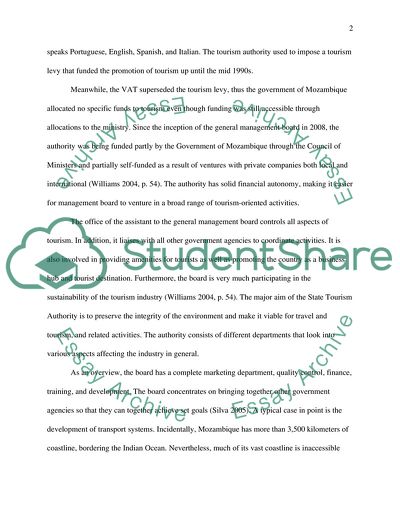Cite this document
(The Development of Travel and Tourism in Mozambique Dissertation, n.d.)
The Development of Travel and Tourism in Mozambique Dissertation. Retrieved from https://studentshare.org/tourism/1853960-dissertation-data-analisys
The Development of Travel and Tourism in Mozambique Dissertation. Retrieved from https://studentshare.org/tourism/1853960-dissertation-data-analisys
(The Development of Travel and Tourism in Mozambique Dissertation)
The Development of Travel and Tourism in Mozambique Dissertation. https://studentshare.org/tourism/1853960-dissertation-data-analisys.
The Development of Travel and Tourism in Mozambique Dissertation. https://studentshare.org/tourism/1853960-dissertation-data-analisys.
“The Development of Travel and Tourism in Mozambique Dissertation”, n.d. https://studentshare.org/tourism/1853960-dissertation-data-analisys.


